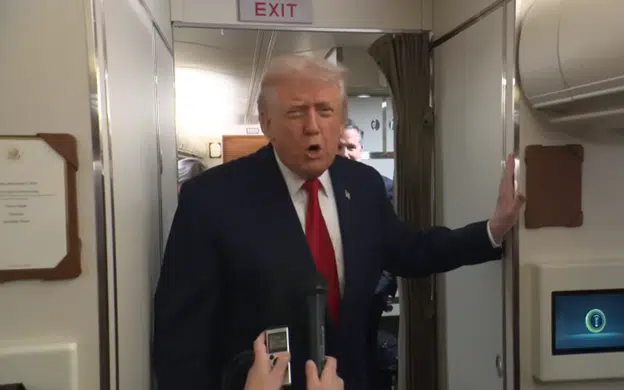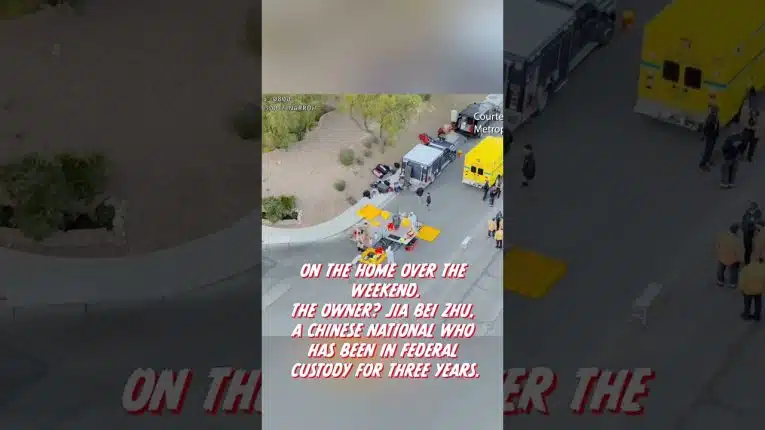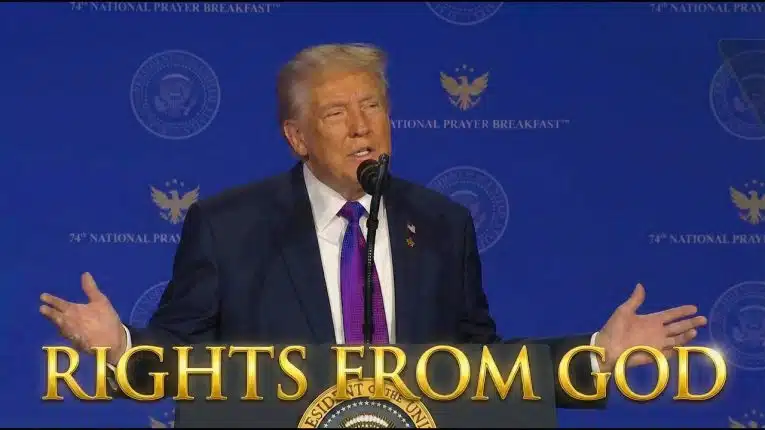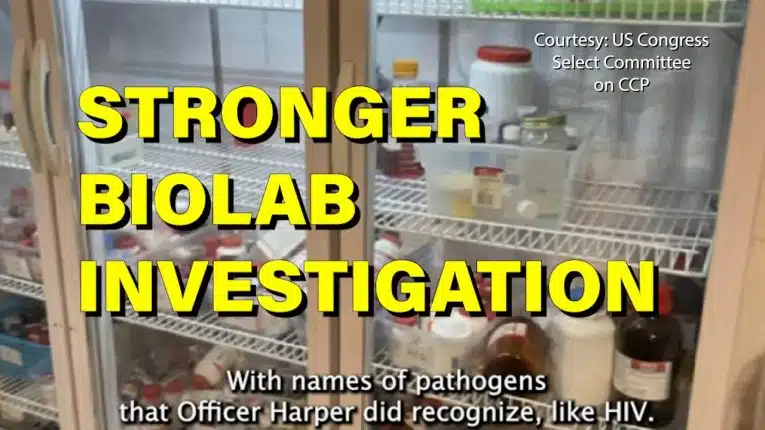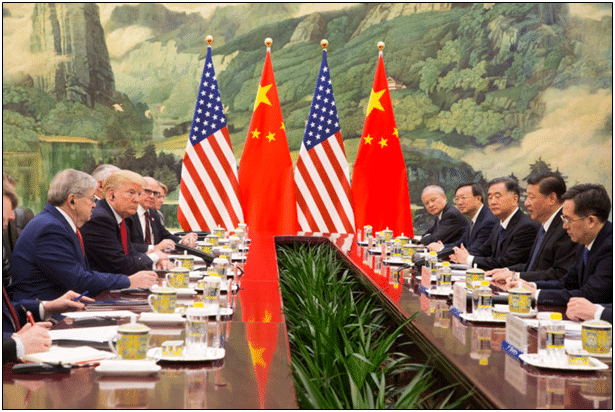
President-elect Donald Trump is wasting no time with implementing his trade, border, immigration policies and war on drug cartels, promising to levy a 25 percent tariff on Mexico and Canada if they don’t secure their borders to prevent illegal aliens from crossing into the U.S. and to increase the tariffs on Chinese goods to 35 percent on $250 billion of goods and 17.5 percent on the remaining $300 billion of goods.
Those would come atop the 25 percent and 7.5 percent tariffs already in effect on Chinese goods that Trump implemented and that President Joe Biden never rescinded.
In a post on Truth Social on Nov. 26, Trump addressed the increase in the tariffs on China until the fentanyl and other narcotics shipments stop, “I have had many talks with China about the massive amounts of drugs, in particular Fentanyl, being sent into the United States – But to no avail. Representatives of China told me that they would institute their maximum penalty, that of death, for any drug dealers caught doing this but, unfortunately, they never followed through, and drugs are pouring into our Country, mostly through Mexico, at levels never seen before. Until such time as they stop, we will be charging China an additional 10% Tariff, above any additional Tariffs, on all of their many products coming into the United States of America.”
And in a separate post, Trump also addressed the new tariffs for Mexico and Canada until they secure their borders to stop illegal aliens from crossing into the U.S. and similarly stop the fentanyl shipments, “As everyone is aware, thousands of people are pouring through Mexico and Canada, bringing Crime and Drugs at levels never seen before. Right now a Caravan coming from Mexico, composed of thousands of people, seems to be unstoppable in its quest to come through our currently Open Border. On January 20th, as one of my many first Executive Orders, I will sign all necessary documents to charge Mexico and Canada a 25% Tariff on ALL products coming into the United States, and its ridiculous Open Borders. This Tariff will remain in effect until such time as Drugs, in particular Fentanyl, and all Illegal Aliens stop this Invasion of our Country! Both Mexico and Canada have the absolute right and power to easily solve this long simmering problem. We hereby demand that they use this power, and until such time that they do, it is time for them to pay a very big price!”
This is exactly the same approach Trump took in office in 2019, resulting in a June 7, 2019 deal between President Donald Trump and Mexican President Andres Manuel Lopez Obrador that avoided Trump’s threatened tariffs on May 30 that would have been 5 percent starting on June 10, 10 percent on July 1 and then up to 25 percent by October.
At the time, Trump wrote on Twitter (now X), “On June 10th, the United States will impose a 5% Tariff on all goods coming into our Country from Mexico, until such time as illegal migrants coming through Mexico, and into our Country, STOP. The Tariff will gradually increase until the Illegal Immigration problem is remedied… at which time the Tariffs will be removed. Details from the White House to follow.”
Then the deal was cut days later, which included a Mexican military deployment to interdict the oncoming migrant caravan from Central America, as well as provision for asylum seekers to wait out pending hearings in Mexico without being allowed to cross into the U.S.
According to the text of the joint agreement, “Mexico will take unprecedented steps to increase enforcement to curb irregular migration, to include the deployment of its National Guard throughout Mexico, giving priority to its southern border. Mexico is also taking decisive action to dismantle human smuggling and trafficking organizations as well as their illicit financial and transportation networks.”
In addition, the U.S. has expanded the Migrant Protection Protocols, per the agreement, “those crossing the U.S. Southern Border to seek asylum will be rapidly returned to Mexico where they may await the adjudication of their asylum claims… [And,] Mexico will authorize the entrance of all of those individuals for humanitarian reasons, in compliance with its international obligations, while they await the adjudication of their asylum claims.”
Immediately following the agreement, encounters on the southern border with Mexico decreased from 144,116 in May 2019 to 45,250 by Oct. 2019, a 68.6 percent decrease, showing the immediate impact of the tariff threat that never actually had to ever go into effect, because the threat alone resulted in an agreement and immediate actions by Mexico.
Now, Trump is broadening the scope of the tariff threats to get Canada and China into the mix as well as Mexico, to not only stop the illegal aliens from crossing into the U.S. — which now number in the millions thanks to President Joe Biden’s refusal to secure the border — but also to stop the shipments of fentanyl and other deadly narcotics, which kill about 100,000 Americans every year.
In 2019, Trump’s critics predictably stated the policy could not possibly work.
At the time, the Wall Street Journal editorial board on May 31 had predicted, “The first problem here is that Mr. Trump is blaming Mexico for a mess it can’t solve… Perhaps it could better control its border with Guatemala, but the caravans north are often led by gangs that know how to bribe or avoid police.”
The Council on Foreign Relations on June 5 stated, “President Andres Manuel Lopez Obrador of Mexico can’t staunch the flow of people from his neighbors to the south.”
But that was all wrong.
Now, the same critics are rearing their heads, suffering from amnesia about how Trump has successfully wielded tariffs in the past to achieve executive agreements with countries including Mexico, but also an executive agreement trade deal in 2020 right before Covid with China even while leaving the tariffs in place. Both of those things were supposed to have been impossible, per President Trump’s critics on trade. Tariffs would cause a trade war, they said. Instead they helped bring about a fair and reciprocal trade agreement.
Next, critics are resorting to a very dubious inflation argument around tariffs arguing that the 2021, 2022, 2023 and 2024 bout of inflation — for goods and services across the board — must have somehow caused by the tariffs Trump enacted in 2019. They want to argue tariffs will cause more inflation, and so it stands to reason they also think Trump’s tariffs from his first administration that Biden never rescinded also caused inflation.
If so, that’s just wrong. Covid caused the global economy to shut down, leading to production shortfalls that continue to this day, and the U.S. printed almost $7 trillion in response during and after the pandemic. It was too much money chasing too few goods.
Meanwhile, consumer inflation in 2019 averaged 1.8 percent. The tariffs had no impact. Similar arguments, only in reverse, were made about the Smoot-Hawley tariffs during the Great Depression. Only they weren’t though to cause inflation but deflation. But the problem actually had to do with Great Britain and other countries leaving the interwar gold standard during the Great Depression, which cause the U.S. dollar to strengthen to untenable levels and unemployment skyrocketed.
The tariffs were an attempted offset, but the real fix came in 1933 when the U.S. came off the gold standard and allowed the dollar to weaken alongside other trade partners’ currencies, the deflation ended temporarily and unemployment dropped from 25 percent in 1932 to 11 percent by 1937.

This is very basic: if the dollar is too strong, it can cause deflation, and if it is too weak, it can cause inflation. This is why price stability is targeted by central banks, although some countries still use competitive weakening to boost exports. Regardless, tariffs impact how much tax is rendered on imported goods, not exchange rates.
But, maybe we should just leave it up to the “experts” to explain how tariffs are simultaneously guilty of the deflation of the 1930s and the inflation of the 1970s, 1980s and today — really to suit whatever economic malady the globalists wish to circumstantially blame on sound trade protection policies that Trump will be implementing. Whatever goes wrong, rest assured, will be blamed on tariffs.
In any event, it might not even be necessary for Trump to levy the tariffs: All Mexico, Canada and China have to do is secure their borders and ports and stop the illegal aliens and fentanyl, and then there won’t be tariffs. Trump kept his word in 2019: he made the threat, but Mexico responded, and the tariffs were not levied. Funny how that works.
Robert Romano is the Vice President of Public Policy at Americans for Limited Government Foundation.


